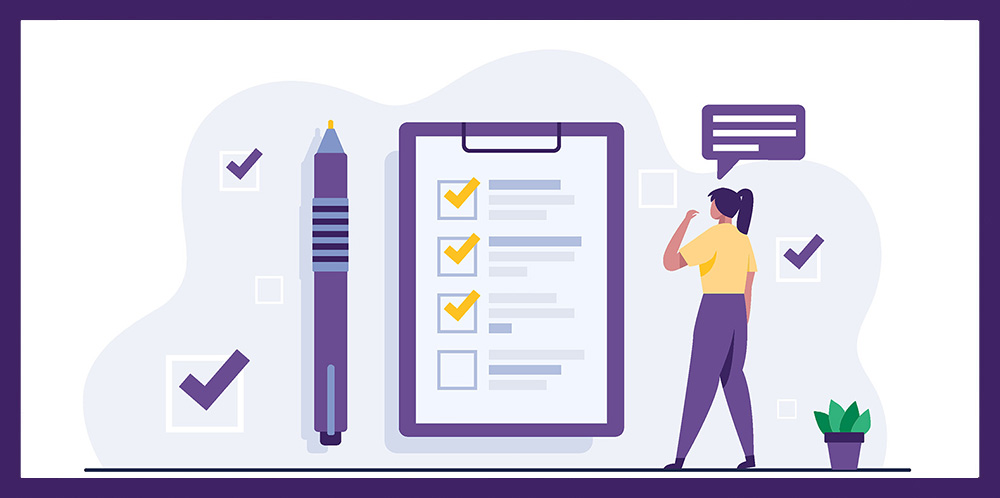Economics
Economics is the science of choices and decision making.
If you have strong reasoning skills, consider yourself a good problem solver or ever find yourself thinking about how the world could run more efficiently, our ACBSP-accredited major in economics may be the right choice for you.
Build your foundation in business and data
In our economics program, you’ll complete your studies within the School of Management. This means you’ll have access to courses that are not available in a typical economics department, such as organizational behavior, career development, marketing, finance and accounting.
As part of your coursework, you’ll go through our Center for Economics of Social Issues to use socioeconomic data from local, state, and national sources, and you’ll have access to regional economic statistics from our Center for Economic Research and Forecasting. Using math, statistics, and data modeling, you’ll gain a crucial skill set — known as quantitative analysis — by uncovering the economic implications of raw numbers.
Manage a real portfolio of investments
Want to learn how to invest strategically? You’ll be able to invest real money and trade real stocks as part of the Investment Club, which presides over a $55,000 student-managed fund. The hands-on experience of growing this fund will allow you to put to work the investment strategies that you’ve learned in your classes.
Create your personal schedule
From day one you’ll be on track towards graduation with a yearly plan. You won’t have to worry about what classes to take — we’ll help you create the perfect schedule with an academic plan that suits you.
Steven Dorfman Scholarship
Covering 75-100% of tuition, the Steven Dorfman Scholarship is awarded to selected first-year admitted students for majors within the School of Management. To be eligible, you must apply by the November 15 Early Action deadline. Learn more
At a Glance

Degree Type
Bachelor of Arts
Department
School/College
College of Arts and Sciences
Next Steps
Interested in this major? Here's what you can do next:
With challenging and relevant courses, outstanding faculty, small class sizes, and an emphasis on hands-on learning, the economics program will position you to succeed in your chosen career.
Degree requirements
Find out what it takes to earn a degree in economics and explore the courses.
Highlighted Courses
Get familiar with some of the courses you might take in this major.
ECON 206: Economic Systems and Society
Examines the approaches of capitalist, socialist and communist societies in the development of economic systems and the formulation of governmental economic policies. Emphasis is placed on the ways in which nations attempt to use economic forces to achieve such social objectives as health care, education and social stability.
Read descriptionECON 321: Money and Banking and Capital Markets
The study of modern monetary theories and the principles of banking, with special emphasis on the Federal Reserve System.
Read descriptionECON 406: Intermediate Macro-Economics
The study of Keynesian economics, concepts and theories of national income, stability and full employment, rate of interest and investment, including macro-economic models.
Read descriptionECON 411: Intermediate Micro-Economics
A study of the modern theory of price and the laws of supply and demand. Includes price and output determination and optimal resource allocation in different market situations and in centrally managed versus free-market economies.
Read descriptionECON 414: Economics of the Environment
Students investigate, in economic terms, various environmental problems in today's world to determine the costs and benefits of alternative approaches to environmental remediation. Also examines major policy alternatives for environmental protection. The course provides the opportunity for application of the principles of economics to the study of the environment from an economic perspective.
Read descriptionECON 450: Econometrics
Econometrics is concerned with how to learn from economic data. Econometric techniques are increasingly used in business, government and academic setting to analyze markets, create forecasts based on past data, study the impact of economic policies, and test economic theories. The objective of this course is to provide the necessary tools to critically evaluate econometric models and to prepare students for empirical work in economics.
Read description4+1 Option: Fast Track Your Graduate Degree
Add further value to your degree by choosing the 4+1 Option, which gives you a head start on earning a related graduate degree. With 4+1, you’ll be able to take graduate-level courses as part of your undergraduate curriculum. After graduation, you’ll only need one additional year to complete your degree at Cal Lutheran — saving you both time and money.
Recommended Minors
Want to add even more value to your degree? Consider one of these minors to gain a unique combination of skills and perspectives.
Professor and Director, Economics, Executive Director, Center for Economics of Social Issues
Department Chair
Professor, Business Administration
Executive Director, Center for Economic Research & Forecasting; Associate Professor, Economics
Director and Professor, MS in Quantitative Economics program and Director, Economics, Center for Economic Research and Forecasting
Assistant Professor, Economics
We offer hands-on opportunities that give you the freedom to explore your passion through real-world work and prepare for a fulfilling career.
-
Real-world Applications
Quantification of economic changes is important. As part of your coursework, you’ll use socio-economic data of the region, state and nation from our Center for Economics of Social Issues. You’ll also have access to regional economic statistics from our Center for Economic Research and Forecasting.
-
Student Clubs
Our School of Management offers many clubs and associations to help you meet professionals, learn more about the industry, and have fun at events.
- Accounting Association
- American Marketing Association
- Business of Sports Club
- Delta Sigma Pi
- Entrepreneurship
- Investment Club
- PIHRA, Human Resources Club
- StartupCLU
- Women in Business
-
School of Management Events
Throughout the year you can attend events that create opportunities to learn about new ideas and forge new relationships within a powerful and lively business community.
-
Community Outreach
The School of Management oversees three centers that offer high-quality scholarship and community-related activities.

I use my research data in the classes I teach. This is particularly true of my Statistics and Econometrics classes. This allows students to use real data and hopefully make a stronger connection for them.
Kirk Lesh
Assistant Professor
Because the skills of an economics major are so adaptable, you’ll be able to choose from a variety of career paths. Some common choices include banking and finance, economic and demographic research and forecasting, and urban planning.
Potential Careers
Economists
Conduct research, prepare reports, or formulate plans to address economic problems related to the production and distribution of goods and services or monetary and fiscal policy. May collect and process economic and statistical data using sampling techniques and econometric methods.
Read descriptionManagement Analysts
Conduct organizational studies and evaluations, design systems and procedures, conduct work simplification and measurement studies, and prepare operations and procedures manuals to assist management in operating more efficiently and effectively. Includes program analysts and management consultants.
Read descriptionBudget Analysts
Examine budget estimates for completeness, accuracy, and conformance with procedures and regulations. Analyze budgeting and accounting reports.
Read descriptionFinancial and Investment Analysts
Conduct quantitative analyses of information involving investment programs or financial data of public or private institutions, including valuation of businesses.
Read descriptionLabor Relations Specialists
Resolve disputes between workers and managers, negotiate collective bargaining agreements, or coordinate grievance procedures to handle employee complaints.
Read descriptionPurchasing Managers
Plan, direct, or coordinate the activities of buyers, purchasing officers, and related workers involved in purchasing materials, products, and services. Includes wholesale or retail trade merchandising managers and procurement managers.
Read descriptionSupply Chain Managers
Direct or coordinate production, purchasing, warehousing, distribution, or financial forecasting services or activities to limit costs and improve accuracy, customer service, or safety. Examine existing procedures or opportunities for streamlining activities to meet product distribution needs. Direct the movement, storage, or processing of inventory.
Read descriptionQuality Control Systems Managers
Plan, direct, or coordinate quality assurance programs. Formulate quality control policies and control quality of laboratory and production efforts.
Read descriptionEmployers
Some of the organizations our graduates work for include:
- Bank of America
- City of Ojai
- Homeland Securities Investigations
- J.D. Power & Associates
- Lieberman Research Worldwide
- Merrill Lynch
- Milken Institute
- NovaStore Corporation
- PennyMac
- State of Colorado
- State of Alaska
- U.S Automobile Association
Graduate Schools
Our alumni have pursued advanced degrees at:
- California Lutheran University
- California State University, Northridge
- Colorado State University
- George Washington University
- Pepperdine University
- University of Edinburgh
- University of Virginia
- William Mitchell College of Law
This page includes information from O*NET OnLine by the U.S. Department of Labor, Employment and Training Administration (USDOL/ETA). Used under the CC BY 4.0 license. Some occupations listed above may require a related graduate degree.
How We Prepare You for Success
We have 20,000+ employer contacts for jobs and internships, with over 200 listings posted each week.
Our excellent career counselors in the Career Services center will get in touch with you during your very first term on campus. They offer over 50 workshops each year on resume writing, interviewing, salary negotiations, applying to graduate schools, and other critical skills to help you begin your career successfully.
After you graduate from Cal Lutheran, you receive free access to Career Services for life, as a valued member of our alumni family.
of Cal Lutheran graduates find a job or enroll in graduate school within nine months
We work with students and families to make sure everyone who is admitted to Cal Lutheran can afford it.
Tuition & Fees
You and your family might have questions about how you’ll cover the costs of college. We can tell you this — it costs less than you think.
Scholarships & Grants
We offer a range of awards based on academic merit and financial need. This is money that does not need to be repaid.
Net Price Calculator
Take a few minutes to use our calculator and get yourself a personalized estimate of your costs and financial aid.
Let us know and we'll send you information about our academics, campus life, the admission process, and more!
Ready to apply?
We’re now accepting applications for Fall 2026!
Level Up Your College Search
Check out our college success guides to help you navigate the search process.

How to Choose a College Major
Your major will be a significant part of your academic experience. How do you pick the right one?

5 Tips for Applying to College
Learn how to look good when applying to colleges, with personal tips to stand out from Cal Lutheran admission counselors.

How to Afford College
Read this guide to minimize costs as you save for college during high school — learn all about scholarships, financial aid, FAFSA, and more!

5 Key Advantages of a Liberal Arts Education
Are the liberal arts still worth studying in today's world? If you want a future-proof college education — absolutely.

How to Get Recruited for College Athletics
Check out our tips to connect with coaches, navigate campus visits, and move forward with confidence.

Private vs. Public Universities
The differences between each — and how to choose the school with your dream college experience.
